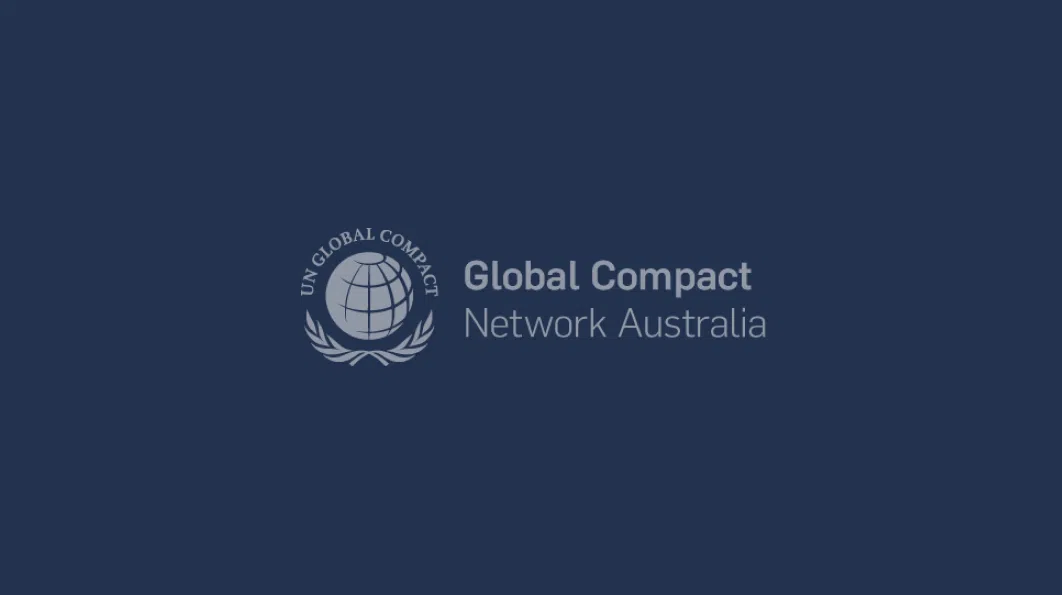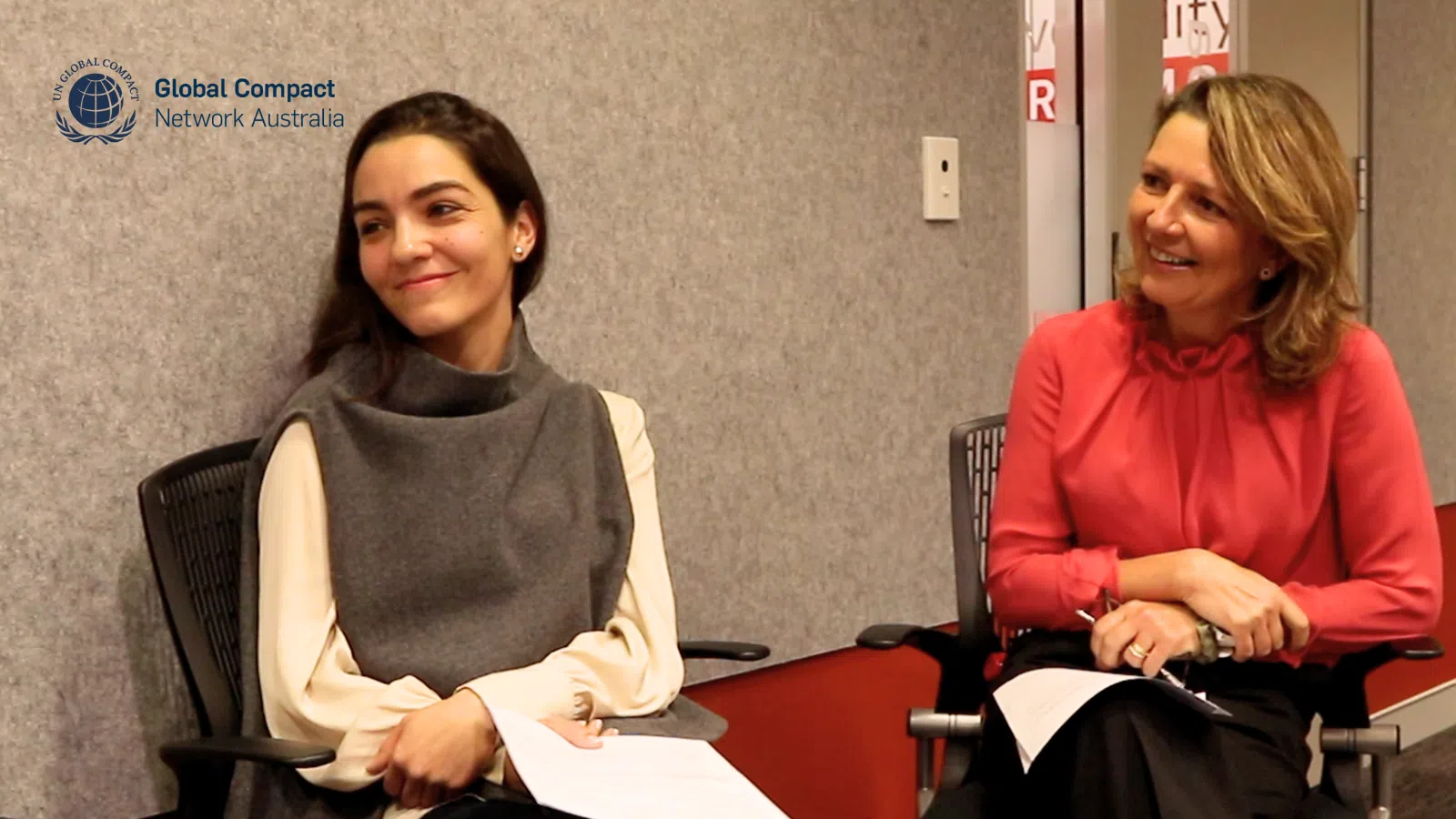
Business & Human Rights, Featured, News
Modern slavery in the spotlight as businesses explore potential new legislation
UN Global Compact Network Australia | April 28, 2017
Earlier this month, over 100 representatives from business, government, the investor and NGO communities gathered at the GCNA’s Modern Slavery Forum, which provided an opportunity for businesses to hear from business, government and civil society leaders about the imperative to address modern slavery risks and the Australian Government’s inquiry into a potential Australian Modern Slavery Act.
Modern slavery in its many forms – human trafficking, forced labour and debt bondage among others – continues to affect millions around the world, with some estimates putting the number at around 45.8 million.1 Globally, 66.4% of modern slaves are from the Asia-Pacific region, including in Australia and Australian supply chains.2 The complexity of corporate supply chains means modern slaves are often hidden from companies but their presence is estimated to generate US$150bn illegal profits in the private economy every year.3
At the Forum, the GCNA gathered leading business, government, investor and NGO representatives to discuss how modern slavery is impacting Australian businesses and their supply chains and the potential business response to the current parliamentary inquiry into potential legislation to address the issue (national inquiry). Speakers included Andrew Forrest AO, Founder, Walk Free and Chair, Fortescue Metals Group, Sharan Burrow, General Secretary, International Trade Union Confederation and Chris Crewther MP, Chair, Foreign Affairs and Aid Sub-Committee (responsible for leading the national inquiry).
The forum built businesses’ understanding of their modern slavery risks, highlighted what new legislation might mean including the possibility of modern slavery reporting requirements similar to those that exist in the United Kingdom, and encouraged submissions to the national inquiry.
Alice Cope, Executive Manager, GCNA said, “It is critical for businesses to get across this very real risk. There is a clear ethical imperative on business to take action, and in addition to this, stakeholders including investors, customers and NGOs are increasingly demanding proactive efforts by business to tackle modern slavery. The Parliamentary Inquiry provides an opportunity for business to engage in a national conversation on this issue and their role in addressing it.”
Vanessa Zimmerman, Rio Tinto’s Group Human Rights Advisor and Chair of the GCNA’s Human Rights Leadership Group for Business said, “Modern slavery is an emerging global issue that businesses need to be alert to, and need to be prepared to address. At Rio Tinto we recognise that modern slavery is a human rights issue. In addition to being consistent with our core values, managing the risk of our involvement in modern slavery, including through our suppliers, has legal, reputational and operational implications.”
While leading Australian businesses are already implementing policies, identifying actual and potential impacts, and engaging suppliers to identify and address modern slavery and other human rights risks in their operations and supply chains, more needs to be done.
Andrew Forrest AO, Founder of the Walk Free Foundation and Chair of Fortescue Metals Group, said it was critical that Australian businesses took urgent action to fight modern slavery by examining supply chains and taking every possible step to eradicate it from organisations.
“The risk of slavery in supply chains is not just a profound moral issue; it is a threat to the long-term performance of international businesses,” Mr Forrest said.
“Legislation, in the form of an Australian Modern Slavery Act, will assist in mitigating reputation risk and increasing the likelihood of successful, sustainable business operations. Stakeholders are increasingly demanding disclosure of corporate human rights performance and expecting companies to ‘know and show’.”
As part of the national inquiry, the Australian Government is calling on businesses and interested stakeholders to make submissions on the challenges in eradicating modern slavery in supply chains, to ensure the potential legislation is effective in assisting businesses to tackle the issue.
“Australian CEOs and businesses must show leadership and in so doing support the Australian Government in leading throughout the Asia Pacific region, and globally. I urge all organisations to put in a submission to the Parliamentary Inquiry,” Mr Forrest said.
The national inquiry follows the introduction of a UK Modern Slavery Act in 2015, which requires companies which carry on business in the UK and global annual turnover above £36 million to publish statements outlining steps taken to ensure no slavery or human trafficking is taking place in their own business or supply chain.
To date, over 1,500 statements have been published under the UK Modern Slavery Act, around 10 from Australian headquartered companies including ANZ Bank, BHP Billiton, Commonwealth Bank, Lendlease, Qantas, Rio Tinto, Telstra and Wesfarmers.
Similar legislation in Australia could help Australia take a lead in the regional fight against modern slavery and support existing policies already helping to address the issue.
For information on the Australian Government’s inquiry into an Australian Modern Slavery Act, see: http://www.aph.gov.au/Parliamentary_Business/Committees/Joint/Foreign_Affairs_Defence_and_Trade/ModernSlavery
GCNA Submission to the Australian Government’s inquiry into an Australian Modern Slavery Act
Notes
1 2016 Global Slavery Index, Walk Free Foundation (http://www.globalslaveryindex.org/findings/)
2 2016 Global Slavery Index, Walk Free Foundation (http://www.globalslaveryindex.org/findings/)
3 Forced labour, modern slavery and human trafficking, ILO (http://www.ilo.org/global/topics/forced-labour/lang–en/index.htm)
GCNA in the Media
We had slaves in our supply chain, says Andrew Forrest, The Guardian
The Fortescue Metals chairman says he was appalled by the conditions of some workers connected to his business.
Australian businesses readying for action to combat modern slavery, Devex
For Australian businesses, addressing modern slavery within supply chains is no longer a question of why it should be done, but how.

